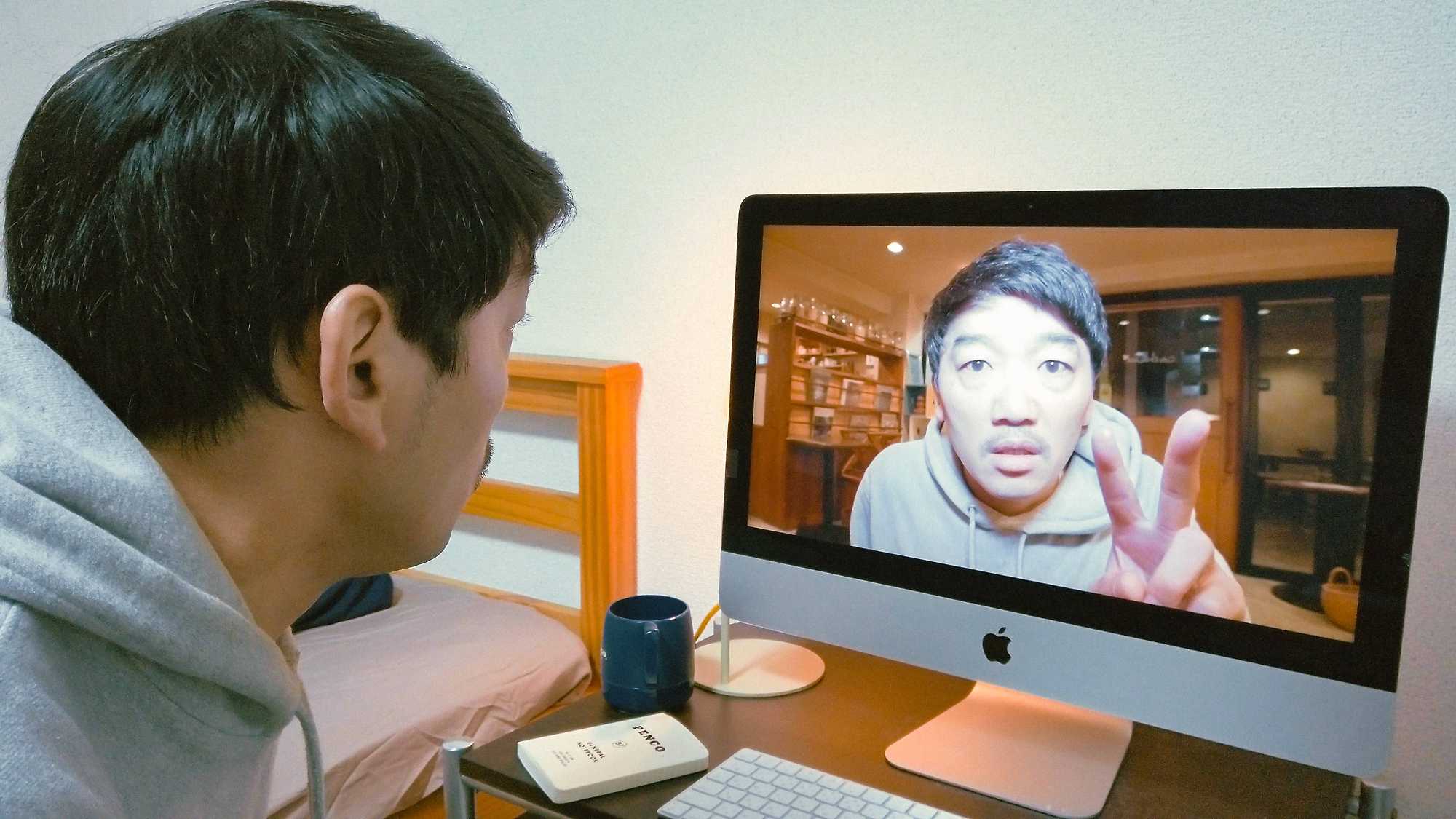A genial café owner is puzzled when he receives a message on his TV from himself two minutes into the future. Director Junta Yamaguchi takes that simple concept, ups the ante and ends up with an instant classic.

High concept and high energy; it’s nearly impossible not to feel the joy radiating off the screen.
Screened as part of NZIFF 2021
Beyond the Infinite Two Minutes 2020
Droste no hate de bokura
Is it possible to be charmed to death from watching a movie? Well, this hilarious, heartfelt and joyous ode to the head-scratching wonderment of time travel could be considered the ultimate test of the theory. This highly inventive puzzlebox of a film, a seemingly one-take-shot-on-iPhone comic thriller, has been hailed by festivals worldwide as a low-fi masterpiece of modern cinema.
Café owner Kato lives in an apartment above the business. One day he gets a message from himself two minutes into the future. The intricate script escalates this simple conceit with exponential returns until our protagonist is caught in a colossal cave of parallel timelines that would give Doc Brown and Marty McFly ulcers. At first Kato seems to have a handle on things, but when well-meaning acquaintances become fascinated by the prospect of this ability to glimpse into the future, things start to spiral out of control.
Eventually a line of dialogue like “I got a message from the future’s future’s future’s future!” will transform the mundane existence of our café owner into a nightmare of endless possibilities. Like an ingenious space-time-Rube-Goldberg piece, the film manages to deftly balance the complex ideas of predestination and free will alongside all the good-natured theatrics. — AT
“The movie is so endlessly clever that it can make you forget that it’s unfolding in extra long takes that have been spliced together... yet it’s hard to imagine the movie with different form, given how much immediacy is added with its fluid visual storytelling that doesn't leave a lot of time to think about anything else.” — Nick Allen, RogerEbert.com